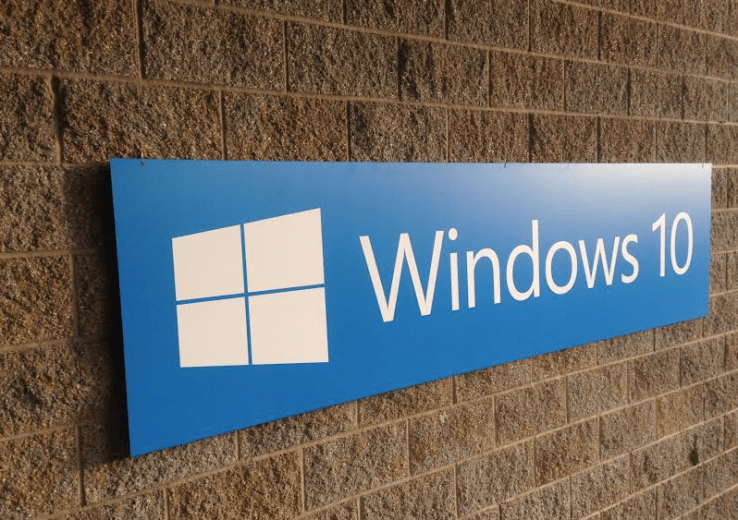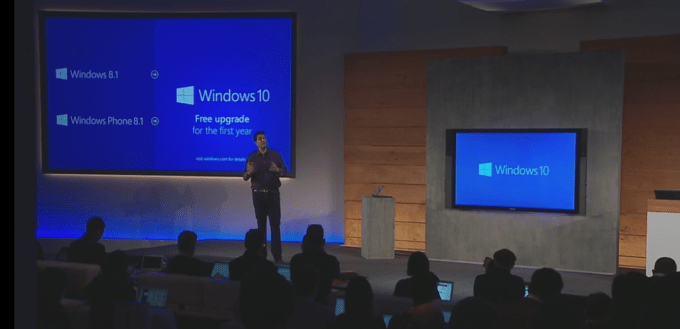 Update: Microsoft promised a new build of Windows 10
next week, and also confirmed previous rumors that the first build of
the operating system for smartphones will be released in February.
Update: Microsoft promised a new build of Windows 10
next week, and also confirmed previous rumors that the first build of
the operating system for smartphones will be released in February.If you are on Windows 7, Windows 8.1 or Windows Phone 8.1, you will be eligible for a free upgrade inside the first year of Windows 10. Microsoft made the announcement this morning at an event on its corporate campus outside of Seattle.
On stage, Microsoft’s Terry Myerson pitched Windows 10 as a service, instead of simply an operating system that a user installs. Or, put more simply, the company views the next version of Windows as the hub of its various services.

Windows 10 will work across device form factors, so the company offering it to both handsets and desktop PC users is not surprising. However the choice to offer it to Windows 7 users was notable — Microsoft is essentially forgoing a chunk of revenue that it could have at least have theoretically earned.
The free upgrade plan should allow Microsoft to lessen the current version fragmentation that Windows endures. Windows 7 becomes even more dated as another version of Windows is released, but remains the most popular operating system for PCs in the world. Microsoft wants those users to get onto Windows 10.